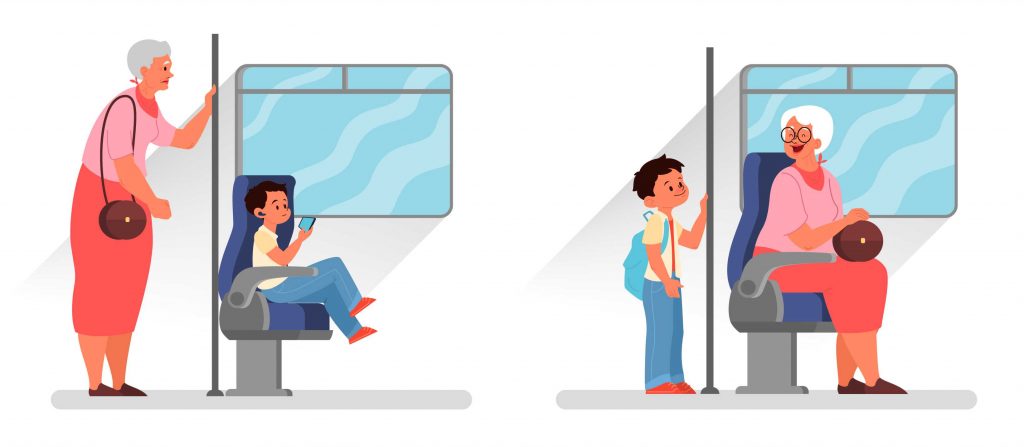
MAKE HOLIDAYS COUNT
Ms L Stegen
HEAD OF FOUNDATION PHASE
With school closing and extracurricular activities stopping, there will be time for lots of fun things to do at home. It is a unique opportunity for parents or other family members to spend quality time teaching their children life skills. Making bread from scratch, cooking, washing clothes, even mopping the floor. It is important to teach them life skills. Sometimes parents think that they will pick it up as they go, instead of taking the time to teach them. There is often no time for the simple act of children learning to tie their own shoelaces. It is easier to do it for them. But we need to take time to teach basic skills.
Of course, there are lots of other fun activities. For example, learning about a new country or culture. Let them blindly point out a place on a map or globe. Then read and learn about that country and find interesting facts about it.
Gardening can help children learn where food comes from and how things grow. Teach them about caring for pot plants.
Teach them how to cook and bake. This creates an opportunity to learn about maths, health, following instructions, reading and many other skills. Let them read the recipe, handle the measuring cups or spoons, pour and mix.
Practise storytelling aloud and even writing stories. Start the story and they must complete it. Help them build their vocabulary. The stories could also be acted out.
Start a craft project that is age appropriate. Make a cardboard box car, dollhouse, piece of furniture or even build a town. These activities develop cognitive and fine motor skills, learning about colour and shapes. Remember to stock up on necessary supplies before starting a craft project.
- Drawing and painting
- Playing some old educational board games or building puzzles
- Build/Make a birdfeeder, feed the birds and get to know birds.
- Teach them about the undersea world.
- Make and decorate their own cards
- Perform basic fun scientific experiments
- Try even to learn words of a new language
There are just so many fun activities which could even be a help once they return to school.
Source: beaches.com/blog/educational-indoor-activities-for-kids/

MANNERS CHECK
Ms E Gouws
HEAD OF INTERMEDIATE PHASE
Do your children have basic manners? Do the check on 10 of them.
Greet everyone who calls or comes home
Teach your child to greet when someone visits your home and when they leave. Teach your child to shake hands (if Covid allows), make eye contact and offer a word of welcome. First impressions make a big impact.
Never interrupt
When your child wants to say something, teach them to say, Excuse me, please. Tell them never to interrupt elders when they are talking.
Never talk over adults
When an elder is speaking, teach your child never to speak or to speak louder than the elder in order to be heard.
Say ‘please’ and ‘may I’
Always ask before taking something from you or someone else, by saying please or may I.
Say ‘thank you’
Whenever someone gives your child something, tell them to show gratitude by saying Thank you.
Stand up when an elder enters the room
This is a sign of respect to any visitor to the home. Teach your child to stand as a sign of respect.
Open the door for others
Door holders open for their peers, their mothers, their dads, and strangers. They also yield the sidewalk and hold the elevator. Good manners always say, After you.
Offer to serve people who enter the home
Make it routine. May I take your coat? Would you like a glass of water? Let me take your bags. This is a key lesson, no matter what your child’s age.
Knock on the door
Always be sure to knock on the door before entering a room. This is a basic courtesy that all children should practise irrespective of their age.
Practice manners at family mealtimes
Demonstrate, practice, model, question, prompt at mealtimes. No phones, no books and no distractions from polite interaction. Please pass the potatoes. Thank you. Can I get that for you? Mom, may I pour you a glass of water? The family unit is the most important venue to learn social graces.
Sources: https://www.allprodad.com, https://grkids.com/manners-for-kids, https://www.news18.com

REFLECT ENCOURAGEMENT
Mr D van Straten
HEAD OF SENIOR PHASE
The mirror is perhaps one of the oldest and most-used inventions of all time. The first evidence of mirrors as grooming tools date to the 5th century BC, in illustrations on antique pottery of Greeks gazing at hand mirrors.
Today, many of us make use of a mirror several times a day to see if we are presentable to those around us. And, before you say so, a British poll conducted by Avaj (Anon: 2015) has revealed that men look at their reflection 23 times a day on average, compared to 16 times by women.
Mirrors are often painfully truthful in their reflection. They replicate exactly that which is presented to them: another wrinkle, or less hair and more forehead. In fact, many of us would probably prefer not to look at a mirror too often.
Like mirrors, teachers and parents often reflect to children that which they are presented with, also in terms of academic ability. Learners who perform poorly in tests or assignments are often treated as less capable in general: it is the smarter kids who can answer the questions better, speak better, lead better, or even just take the sick note to the office better.
However, unlike mirrors we should always strive to not only reflect the obvious, but to see the deeper potential in every child: always being prepared to start again where concepts have been misunderstood, always encouraging where there is academic failure, always seeing every child as an individual who can make a bigger difference than ourselves.
Is that not what we also were…? 1 Corinthians 6:11
Sources: Anon, 2015. Men check themselves out more than women: study. [Web:] https://www.nydailynews.com/
Anon, n.a. The Rise of the Mirror as Commonplace [Web:] The Rise of the Mirror as Commonplace (brown.edu)

ENJOY…SCHOOL
Ms J Sibeko
HEAD OF FET PHASE
Ask any parent who has a child in Grade 10, 11 or 12 and they will concur that their child certainly has a lot on her plate. What with sport, choir practice, music lessons, cake sales, prefect duties, co-curricular opportunities, extra lessons, CATs, PATs, research projects, orals, PowerPoint presentations and whatnot, the list is endless!
How then can your child find pleasure in going to school? Remember that a parents’ attitude is contagious. If you feel stressed and worried about Sally’s school work, of course, unconsciously your attitude will spill over and affect poor Sally. Days will end up with Mom and daughter (or son) in a cycle of frazzled nerves which leave you both feeling drained, tense and overwhelmed.
I think too often we concentrate on the product rather than the process. Let’s find things to celebrate on this journey. Let’s find ways to assist our children to enjoy school even when it is difficult. Let’s focus on the journey, not only on the destination.
What memories will you help your child create in his/her last years of school? The degree of happiness they experience may just start with you.

KNOW YOUR CHILD
Ms A du Preez
ACADEMIC HEAD
From above their Covid-masks, a classful of eyes greet me. Most of them are twinkling with excitement for the new school day but one pair tells a different story. Is the child sad? Sick? Tired? Hungry? Has something maybe happened at home?
Parent, do you know your child? Are you aware of their joys, struggles and needs?
Whenever we have class discussions about what children appreciate in their parents, the learners’ general opinion is overwhelming: “quality time with my parent”. It is neither the latest expensive gadgets the parent buys for the child, nor the freedom where the parent allows them to do whatever they like or the movies they watch together. The child needs and enjoys the parents’ personal attention.
Quality time can be found in one meaningful phone call, in a thoughtful answer to a child’s question, in attending the child’s sports event, in sharing joys and even in sharing tears.
We need godly wisdom to know our children and to be able to discern between a broken heart and self-pity; between tears of sadness and those of anger; between shyness and hidden pride.
Parents who know their children can help them on the right way. And a child who feels loved and cared for, will be prone to listen to their parents’ advice.
But above all, the heartfelt prayer of a parent reaches where no man can reach. God can bring that twinkle back into the eyes.
